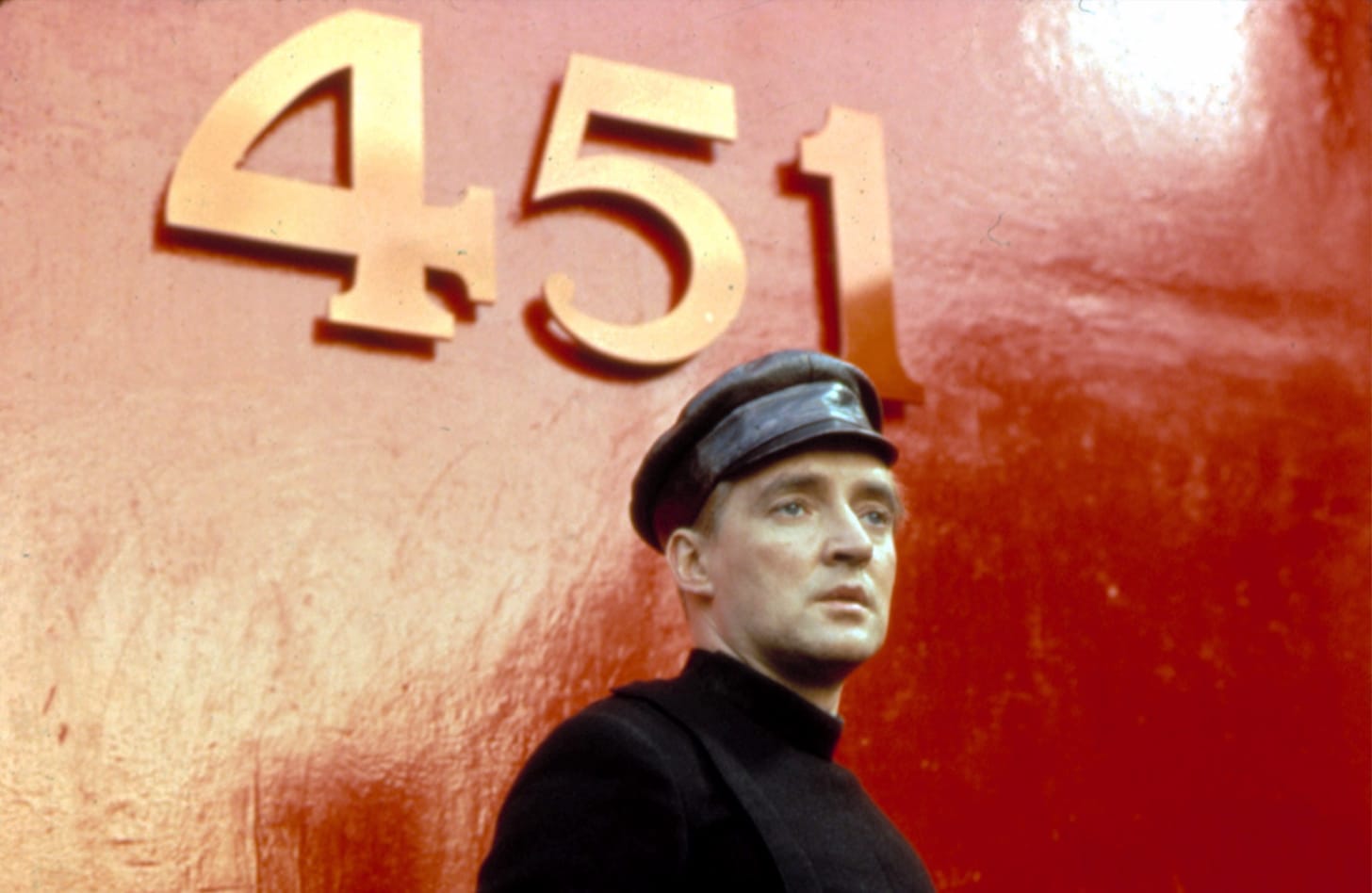Our little book club at Memorial is taking part in “The Big Read,” a national effort modeled on successful "city read" programs designed to encourage literary reading by helping communities come together to read and discuss a single book. The selected book is Ray Bradbury's Fahrenheit 451.
Lectures, readings, art exhibitions, theater productions, book discussion groups, and film festivals are occurring in a variety of locations throughout St. Louis, all featuring themes and questions that Fahrenheit 451 raises about the power of books and reading.
There are several informal discussions of the book going on on Washington University's campus in February, and two discussions will be held at Kemper Art Museum on Sunday Feb. 11 and 18 at 2:00 p.m., followed by a docent led tour of the museum's new exhibition called Reality Bites: Making Avant-Garde Art in Post Wall Germany.
Our fearless leader, Heidi Kolk, has given us a month to read the book, culminating with a discussion on Sunday evening, February 18th (all are welcome - if you'd like to join us, drop me an email for details). Megan and I are hoping to take part in at least one of the community-sponsored events as well.
To possibly whet your appetite, below is a review I wrote of Fahrenheit 451 when I first read it a couple of years ago. The review is hardly in-depth, but it might give you an idea of the basic story and serve as an encouragement to pick up and read a good book.
With all the publicity generated by Michael Moore's film Fahrenheit 9/11, I thought it might be a good idea to read Ray Bradbury's original book of similar title. Fahrenheit 451 represents the temperature at which paper burns, which is fitting considering Bradbury's book is about censorship, and I enjoyed the futuristic story (which takes place now, fifty years later from when he originally wrote it) as it bears great and realistic resemblance to our ever-interesting (and complicated) world today.
The story follows one Guy Montag, a "fireman" whose job it is not to put out fires, but to start them in homes whose owners are reportedly hiding books. All seems well and fine to Guy (who has been burning books for ten years) until he has a conversation with Clarisse, a 17-year-old girl who questions him about his present occupation.
This gets Guy asking questions in his head, and at his next fire, he secretly salvages some books as part of his consideration of Clarisse's inquiries. He then meets a former professor (with no books, there is not much to teach; hence the "former" qualifier) and he relates to Guy that just because books are banned doesn't mean their content is lost and may one day be reclaimed.
Seeing the literary light, Guy has a drastic change of heart and, in the course of 24 hours, plots to single-handedly rage against the censorship machine, risking his job, relationships, and life to evoke such revolution. The rest of the book details his crusade, his ideas and motives that accompany it, and resolves in a satisfying and hopeful manner as he joins forces with other "book people" to one day create a new beginning from the ashes of censorship.
A bit vague and hodge-podge at the start, Bradbury's writing style smoothes out to tell a good story at a good pace. While his characters are semi-developed at best, Bradbury's main idea and overarching themes branching out from it are most interesting, especially when read in the light of the current political climate and clash of government mistrust and freedom of speech.
Comparable to George Orwell's 1984 and Aldous Huxley's Brave New World, Fahrenheit 451 is probably the most believable of these three "doomed future" stories as it does not come across so "futuristic" as it does "future-is-now" in terms of plot and perspective.
Of all three books, Fahrenheit 451 seems most organic in its storytelling, and this perhaps is what makes it more frightening to think that a few generations of bad decisions could very well cast us into a cauldron of censorship, a concept so foreign to us right now that it makes it all the more scary to think about and believe.




